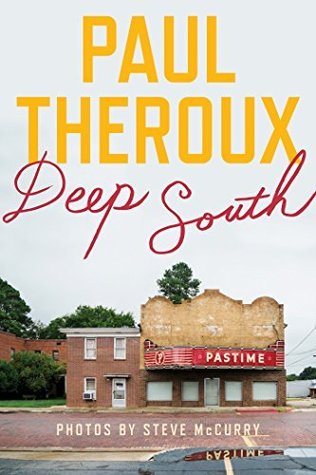More on this book
Community
Kindle Notes & Highlights
Our great gift as a country is its size and its relative emptiness, its elbow room. That space allows for difference and is often mistaken for tolerance. The person who dares to violate that space is the real traveler.
By degrees, over the years, the airport experience has become an extreme example of a totalitarian regime at work, making you small and suspect, depriving you of control. Such is the clumsy questioning of motives that one’s usual response is the sort of suppressed rage that was the traveler’s emotion in Soviet-era Eastern Europe with its bullying policemen. Travel was once a liberation; now it is the opposite—air travel, that is. Younger travelers have no idea what has been lost.
The gun show wasn’t about guns and gun totin’. It was about the self-esteem of men—white men mainly, the dominant ethnic group of the South, animated by a sense of grievance (“the heart of the Southern identity,” according to one shrewd historian)—who felt defeated and still persecuted, conspired against by hostile outside forces, making a symbolic last stand.
I thought of Almeida Garrett, the mid-nineteenth-century Portuguese traveler and philosopher. An inspiration to me, Garrett had taken a trip in his own country, chronicled in Travels in My Homeland (Viagens na Minha Terra), and seeing the poverty, he had formulated a question: “I ask the political economists and the moralists if they have ever calculated the number of individuals who must be condemned to misery, overwork, demoralization, degradation, rank ignorance, overwhelming misfortune and utter penury in order to produce one rich man.”
“There is always a certain element of insolence in being well-fed, as in every aspect of power,” Anton Chekhov wrote to a friend in 1892 while living in Melikhovo, a provincial town smaller than Aiken but with a distinct resemblance: farms, horses, landlords, classy people, overworked peasants. “And that element expresses itself chiefly in the well-fed preaching to the hungry.”
Reading made me a traveler; travel sent me back to books.
I say ignore the books and go there. The Deep South today is not in its books, it’s in its people, and the people are hospitable, they are talkers, and if they take to you, they’ll tell you their stories. The Deep South made me feel like a fortunate traveler in an overlooked land.
Though America in its greatness is singular, it resembles the rest of the world in its failures.


